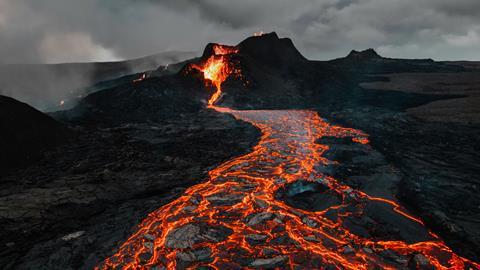Jenny Sanders suggests that even though we’d like to blame God for environmental uproar, many are the direct or indirect result of human folly.

Natural disasters are in the news again. Remember the floods at Dubai airport, or Queensland, Australia? How about in Spain, Burundi, Kenya, Tanzania, Afghanistan, China and India? Are they increasing or are we just accessing more news that we used to?
Severe droughts in Southern Africa mean 40-80% of the staple corn crop has been wiped out in Malawi, Zambia and Zimbabwe. Millions will suffer. A report form the Dutch think tank Clingendael estimates: ‘around 2.5 million people in Sudan could die from hunger by September 2024.’ The Global Report on Food Crises says that in 2023 almost 282 million people across 59 countries and territories were subject to ‘acute hunger’ – a whopping 24 million increase from 2022.
Over fifty ‘significant’ earthquakes have been monitored this year, plus fifty-seven volcanic eruptions.
Over fifty ‘significant’ earthquakes have been monitored this year, plus fifty-seven volcanic eruptions.
There are reports of Dengue fever in Australia, Burkino Faso, Argentina, Mauritius, Honduras, Samoa, Columbia, Ecuador and Paraguay; of Cholera in Zambia, Mayotte, Comoros, Brazil.
Meanwhile, unnatural disasters are also piling up. Apart from wars in Gaza and Ukraine, we’re deluged with news of pollution, decimation of the environment, slaughter of wildlife to extinction, uncontrolled use of resources from fish to minerals, exploitation of workers, domestic violence, persecution, discrimination, inequality, child brides, FMG, drugs, cruelty, pornography, corruption, governmental coups, greed…
Overwhelmed yet?
These things aren’t new; we find similar scenarios scattered through the Bible
These things aren’t new; we find similar scenarios scattered through the Bible: Noah’s flood, the ten plagues of Egypt, droughts and famines in the times of Abraham, Joseph, Naomi and Elijah; enemy armies harassing the people of God.
Where was God then and where is he now?
The Bible claims he hasn’t gone anywhere and, although we’d like to blame him for these disasters, many are the direct or indirect result of human folly. It’s moral evil that destroys humanity; the principle of sowing and reaping writ large in our choices. Romans 8:19-22 reminds us that the world is on a path of decay until Jesus returns. In Deuteronomy 27-28, God laid out a series of blessings and curses for his people depending on the reality of their relationship with him. There are cycles of repentance and restoration throughout the Old Testament.
Here in the UK, we’re hoping a new Government and shift in policies might improve things and ‘fix’ our broken systems. We look to NGOs, environmental agencies and charities to turn around the effects of climate change and throw money at situations further afield.
But, are we dealing with the fruits of our problems rather than the roots? The heart of the problem, as ever, is the human heart which can only be truly changed by God in the long-term. Man-made solutions offer only short-term relief.
While some disasters are the consequence of natural cycles that were set in motion millennia ago, they are also reminders that we are not as in control as we thought. Could it be that, as with his people of old, God is intent on getting our attention? What means are at his disposal to compel us to lift our eyes from our screens, circumstances and western sense of entitlement, and provide opportunities for us to acknowledge and appreciate (as Job did) that God is bigger and more powerful than we ever thought, while nudging us towards him more or less dramatically? Are we putting our fingers in our ears and heading for destruction, or relying on his mercy and grace to meet us in the midst of the consequences of our poor choices regarding stewarding the creation he entrusted to us?
Read more on natural disasters
In the light of the earthquake in Japan, what is it like to trust God while living on fault lines?
‘Becky, are you OK?? Did you guys feel the earthquake?’
‘Pray for Haiti; a nation steeped in voodoo, corruption and poverty’
We know that God is not willing that any should perish (2 Peter 3:9), or die without enjoying the joy-filled living relationship with him for which we were designed. His heart is for us and his desire is to draw the nations into his Kingdom. We must differentiate between punishment and the loving discipline of a Heavenly Father.
James tells us that mercy triumphs over judgement (James 2:13). Whatever is going on is surely far more about grace than about punishment.
God doesn’t ask us to be stoics or oblivious, but he does long for us to bow our knees to him, surrender ourselves and truly make him Lord.



































1 Reader's comment